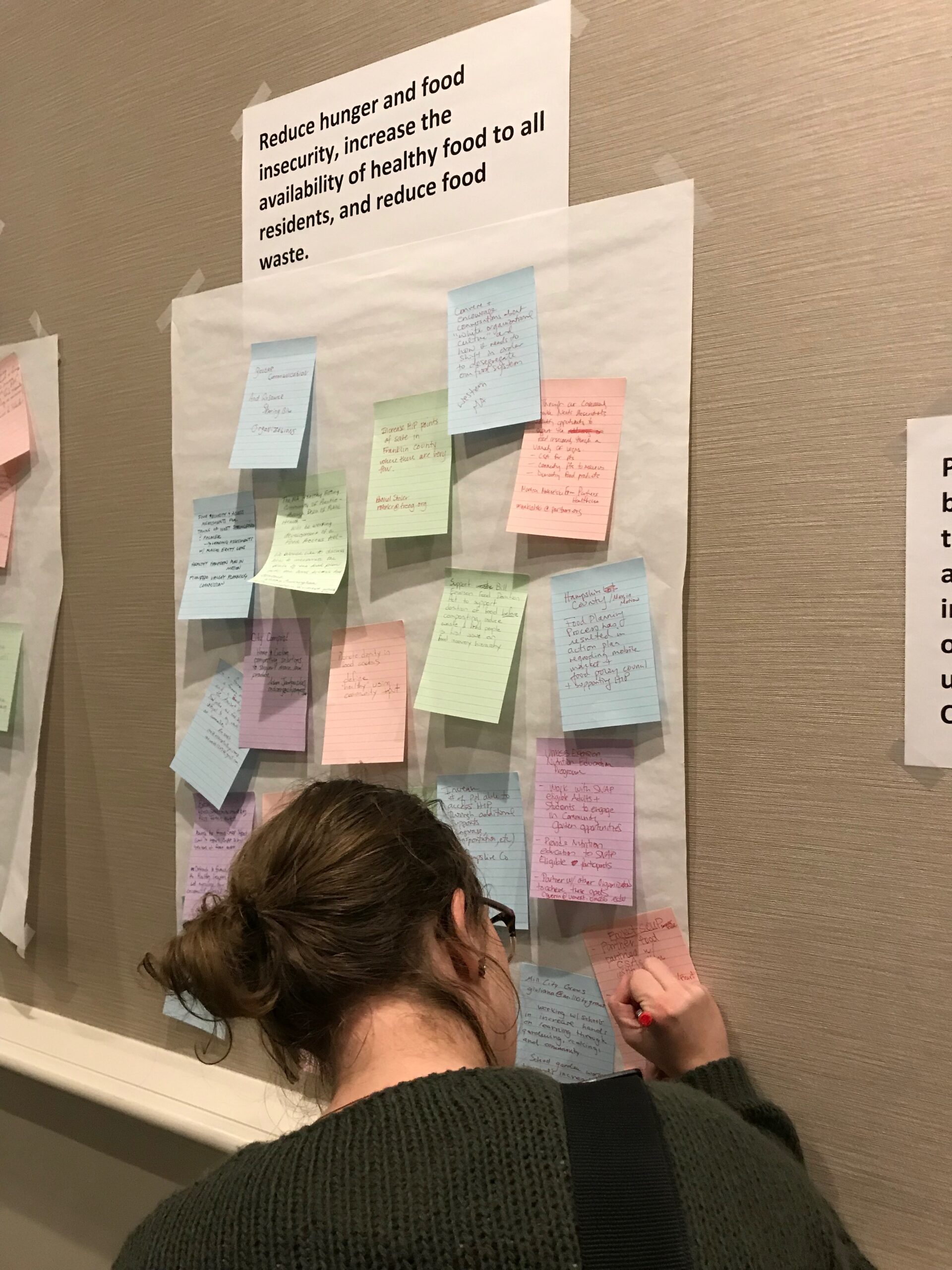
The MA Food System Collaborative hosted the 2017 Massachusetts Food System Forum in Leominster on November 17. More than 200 people, from farmers to funders, elected officials to nonprofit leaders, looked back at how the food system has become stronger in the two years since the completion of the Massachusetts Local Food Action Plan and generated ideas on how to work together to continue to move toward the goals of the Plan.
Speakers highlighted projects that demonstrate the importance of connectivity in the food system and shared stories of successful advocacy efforts. Breakout discussions focused on topics from food waste to school food to farmland access, and elicited suggestions for working collectively going forward.
The Forum began with an update on the work of the Massachusetts Food System Collaborative, which promotes, monitors, and facilitates implementation of the MA Local Food Action Plan. Currently, the Collaborative is working with state agencies, farmers, farmers market managers, and other key players to implement, increase outreach, advocate for, and fund the Healthy Incentives Program. The group is also working on policy recommendations to keep edible food out of the waste stream, and working on other issues ranging from developing recommendations for changes to the Massachusetts Agricultural Preservation Restriction Program, to developing metrics to monitor progress toward Plan goals.
Stakeholders shared highlights of their programmatic and policy work in the food system. The Worcester Food Policy Council is advocating for healthcare providers to screen for hunger, and for schools to serve breakfast after the bell. The Springfield Food Policy Council has enabled all schools in the city to offer a salad bar and has helped develop gardens at 24 schools. The Western MA Food Processing Center, which helps food producers effectively scale their operations, is upgrading their infrastructure with the construction of more freezer space to better serve entrepreneurs, thanks in part to a Food Ventures grant from MDAR; they estimate that 350 individuals will use the facility. Massachusetts Department of Agricultural Resources Commissioner John Lebeaux, who is also Chair of the Massachusetts Food Policy Council, provided an update on the Council’s work.
After lunch, a legislator and former legislative staffer answered questions about the legislative process and how to best engage in policy advocacy. Representatives from a number of food system organizations spoke about several recent and ongoing advocacy campaigns, and the strategies and techniques that have been successful.
During the breakout discussions, attendees spoke about barriers that prevent the food system from achieving the goals set out in the Plan and how to work collectively toward the goals. Some preliminary notes from these sessions:
Throughout the day, attendees added notes to a bulletin board delineating the four main goals of the Plan, indicating what they are doing toward those goals and what they’d like to see happen to further develop a sustainable, equitable food system.
Thank you to everyone who joined us, and to all of the speakers who shared their stories and knowledge at the Forum:
Stakeholder highlights
Panel discussion: Legislative and administrative advocacy
Advocacy campaigns: Lessons from the field